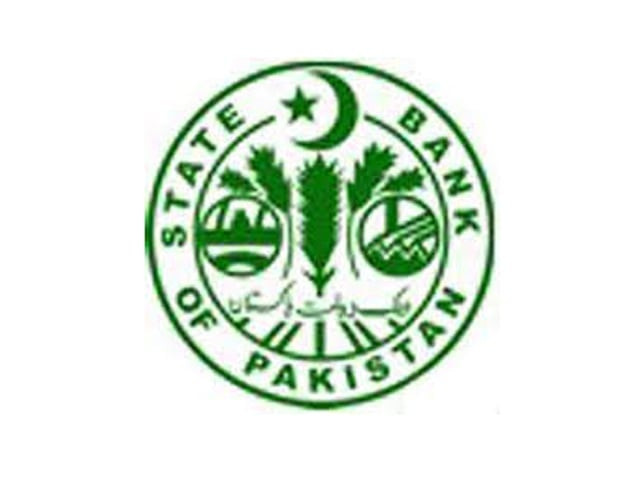Monetary policy: Discount rate unchanged
Macroeconomic risks have increased in the last two months: SBP.

The key policy rate, also known as the discount rate revised every two months, is the interest charged by the central bank when it lends to banks.
After chopping the interest rate by two percentage points over the last two announcements, the central bank decided to keep it unchanged.
“SBP reached its decision after thoroughly considering the need to revive growth and emerging risks to macroeconomic stability,” said state bank’s official statement on Wednesday.
Keeping the persistent inflation and soaring current account deficit in mind, analysts and leading businesspersons’ welcomed SBP’s decision to keep the policy rate unchanged.
Invest Capital Markets analyst Khurram Schehzad said that the SBP has realised the difficulties being faced at macroeconomic fronts by keeping the policy rate unchanged.
Standard Capital Security research head Faisal Shahji said that the market was expecting a cut of at least 50 basis points and this decision might discourage investors.
The objective of adopting this stance is to support revival of private investment in the economy despite a constraining domestic and global economic environment, said the central bank statement.
SBP says that inflationary pressures have not subsided, especially in the last few months, which has forced the central bank to keep the rate unchanged. “A reassessment of latest developments and projections indicate that macroeconomic risks have somewhat increased during the last two months,” it said.
For instance, although the year-on-year CPI inflation stands at 11 per cent in October, the month-on-month inflation trends, averaging at around 1.3 percent per month during the first four months of FY12, show existence of inflationary pressures.
SBP does not expect inflation coming down to single-digit even in the next fiscal year. “The main determinants of this inflation behaviour are government borrowing from the banking system and inertial effects of high inflation on its expected path,” it said.
The primary factors in support of reducing policy rate were the expectation of average CPI inflation remaining within the announced target in fiscal 2012 and a small projected external current account deficit. In pursuing this stance, SBP did acknowledge the risks to macroeconomic stability emanating from fiscal weaknesses and falling foreign financial inflows.
To promote competition in the banking system and offer alternative sources of savings to the population, SBP has been encouraging depositors to invest in government securities through Investor’s Portfolio Securities (IPS) accounts, the monetary policy decision said.
It said the option of maintaining saving deposits or investments in IPS accounts could provide stiff competition to banks forcing them to offer better returns on deposits. This in turn would incentivise savings and help lower the currency in circulation, it added.
Moreover, it will improve the transmission of monetary policy changes to market interest rates, it said, adding that over time this strategy would also diversify the government’s funding source, deepen the secondary market of government securities, and facilitate the issuance of corporate debt.
On the external front, the earlier comfortable external current account position for FY12, which helped SBP in lowering its policy rate, has become less benign. The actual external current account deficit of $1.6 billion for the first four months of FY12 is now higher than the projected deficit for the year, it said.
Karachi Chamber of Commerce and Industry former president Saeed Shafiq
State Bank of Pakistan (SBP) needs to bring interest rates to the level of other regional countries so that we can encourage industry and local investment in Pakistan. We believe interest rates are high enough to discourage new investment in Pakistan. Our private sector has not been able to create new jobs owing to the security situation and energy shortage in the country.
American Business Council President Humayun Bashir
I think the SBP’s decision is good and it’s a calculated move because we also have to control rising inflation in the country. Banks are lending to the government only and not taking risks. Now, what SBP should do is to force banks to lend to small and medium sized enterprises in the country. Big companies are still managing to get loans at 14% but small companies are getting loans at 18 or 20%, which is discouraging for businesses to expand.
Pakistan Business Council Chief Executive Kamran Mirza
Our rupee has been continuously depreciating against the dollar and inflation is another problem that is a key factor. Looking at the current economic conditions of Pakistan and the world, and keeping in mind that the two are not isolated, I think the decision is sensible and good.
Published in The Express Tribune, December 1st, 2011.





1733130350-0/Untitled-design-(76)1733130350-0-208x130.webp)











COMMENTS
Comments are moderated and generally will be posted if they are on-topic and not abusive.
For more information, please see our Comments FAQ